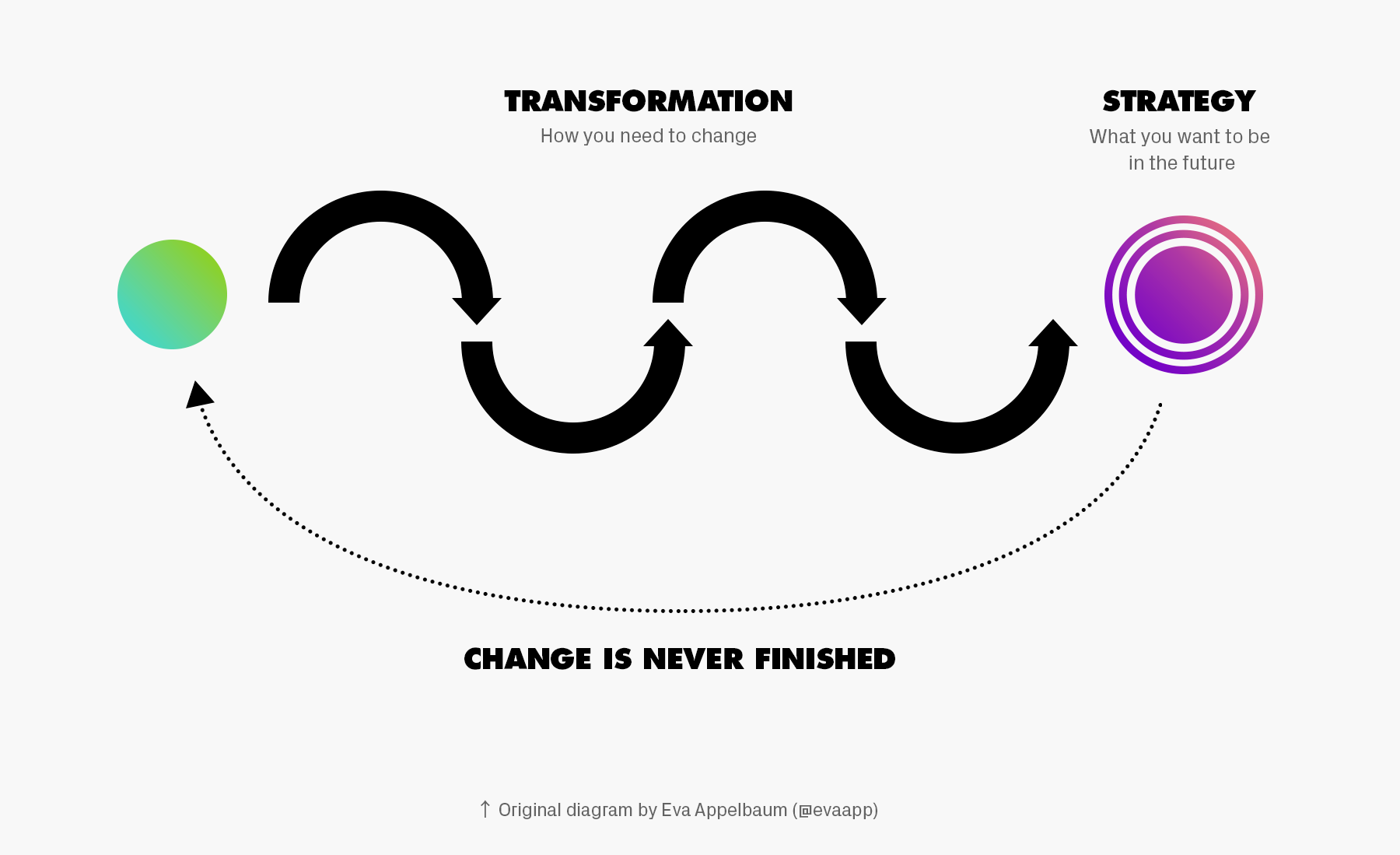David Bowie was a visionary. That’s something we can all agree on. In the Newsnight interview from 1999 that circulated widely after his death, he said:
I think the potential of what the internet is going to do for society – both good and bad – is unimaginable … both exhilarating and terrifying.
This can be read in two ways. It describes the web-zeitgeist of 1999, and prophetically captures what still concerns us about our digital future. What is most prophetic is the realisation that a completely new relationship between artist and audience was being made real. This is at the centre of digital transformation today.
Embedded content: https://www.youtube.com/watch?v=LaHcOs7mhfU
Digital transformation is a huge challenge for incumbent businesses. Companies must transform to face new realities, or die a slow death. 88% of Fortune 500 companies of 1955 are now gone. Fifty years ago, the life expectancy of a firm was 75 years. Now it's 15. Research suggests that only 7% of incumbent businesses have yet become ‘fully digital’.
David Bowie was born in 1947 and was 69 when he died in 2016. How thoroughly life changed during those years. The first ‘packet switching networks’ that pre-figured the internet were developed in the late 1960s and early 1970s. By 1999, the year Bowie gave that interview, the internet was mainstream and was changing the music industry at such a pace, and so thoroughly, that powerful major record labels could not keep up.
The music industry is a great example of a sector entirely transformed through digital. Music, which you used to hold in your hand as vinyl or plastic, could now stream through the airwaves as bits and bytes. An entirely new business model had to be created around this new form of distribution.
Almost 20 years on from Bowie’s interview, companies in many other sectors are struggling with the impact of digital on their businesses. We have seen seismic disruption across sectors from television to banking to the way we order our food. In fact, almost every area of business has been disrupted by the new opportunities that digital brings.
At ustwo we work with companies at every stage of their transformation journey. And start by being precise about what digital transformation actually is. To do this, we condensed what drives digital transformation into 10 Core Principles to help our clients and industry colleagues diagnose exactly when and where change needs to happen, and how to approach the transformation journey.
10 Principles that Drive Digital Transformation
- We are customer-centric. We map each part of the customer experience and seek to improve it at every point. We use marketing to engage, not to persuade. The customer is at the centre of everything we do.
- We have fit-for-purpose systems and platforms. We have nimble systems that operate in parallel. Our technology is easy to use and helps people do their jobs. We assess new technologies in terms of value to our customers.
- We invest in digital people and skills. We invest in skills for our people, and support distributed decision making – anyone can be a leader. We value diversity and connections over individual heroics.
- We maximise data and analytics. We systematically gather and analyse data. We manage our data as a strategic asset. We use data to make decisions.
- We are ‘digital-first’ at board level. We support digital from CEO down. We have an agile value proposition. We use digital experts to critique plans. We remove blockages rather than creating them.
- We test, learn and iterate on what works. We test with prototypes as a matter of course. We lower the cost of failure and increase the speed of learning. We value testing and experimentation over analysis and seniority.
- We work across silos and collaborate. We don’t have separate digital enclaves. We have integrated, cross-functional teams. We make sharing as fast and consistent as possible.
- We reward digital progress. We communicate the benefits of digital in all areas. We show how digital makes work easier and better. We drive peoples’ motivation for digital.
- We track digital progress through metrics and KPIs. We are disciplined about metrics and KPIs. We focus on short-term growth milestones. We define specific growth measures for digital adoption and the impact of new digital initiatives.
- We look outward across sectors and competitors. We view competition across all sectors, not just our own. We actively engage with our competition. We create value through platforms and networks.

Easy to say, hard to do.
At ustwo, we believe that change happens in the making. Innovation is possible in almost every part of business and identifying where to start is crucial.
Getting stuck in and making products is what we do. And in the process, we are able to bring teams together in new and more productive ways. The effect ripples out into other parts of the organisation. Working agile and building things fast is infectious – we set you up to do it sustainably and for the long-term. And we design ways of working to be transparent, so it's simple to demonstrate the progress and impact you’re making to the rest of the business. Transformation is as much about communication as it is new ways of working.
Reports gathering dust on the shelf will not help you adapt to digital. Trying and testing out new things that work in different ways will. We work with our clients to develop light prototypes, which we test in parallel, to identify those that will make the biggest impact to build out.